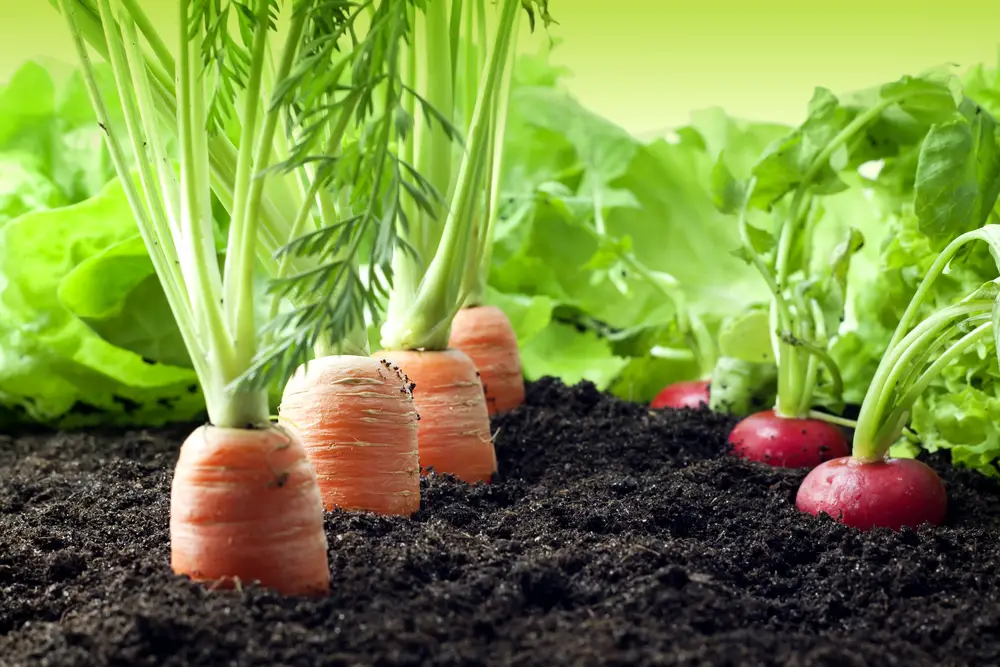Summary
The essential pros and cons of vegetable gardening are diverse and many. The pros include:
- Enjoying delicious homegrown food
- Appreciating your food more
- Having a reason to go out and exercise
- You’re giving back to the earth
- You have greater control over your food and health
- It’s inspiring and relaxing
- It’s empowering and satisfying
The cons include:
- The learning curve can be steep
- It’s time-consuming
- It can be expensive
- Vegetable gardening is slow
- It’s hard work
Whether or not you decide to garden vegetables is up to you. However, if you find it appealing after learning the essential pros and cons of vegetable gardening, we recommend giving it a try. You can always try something else if it doesn’t work out.
Growing a vegetable garden is worth it in various ways, not the least of which is the harvest you get to enjoy.
That said, the first season or two of vegetable gardening can be quite challenging.
New gardeners can find themselves shocked at the amount of work required to succeed.
So, we’ve provided you with all the essential pros and cons of vegetable gardening below, which we hope will help you decide if you want to do it.
Let’s start with the pros.
Pros
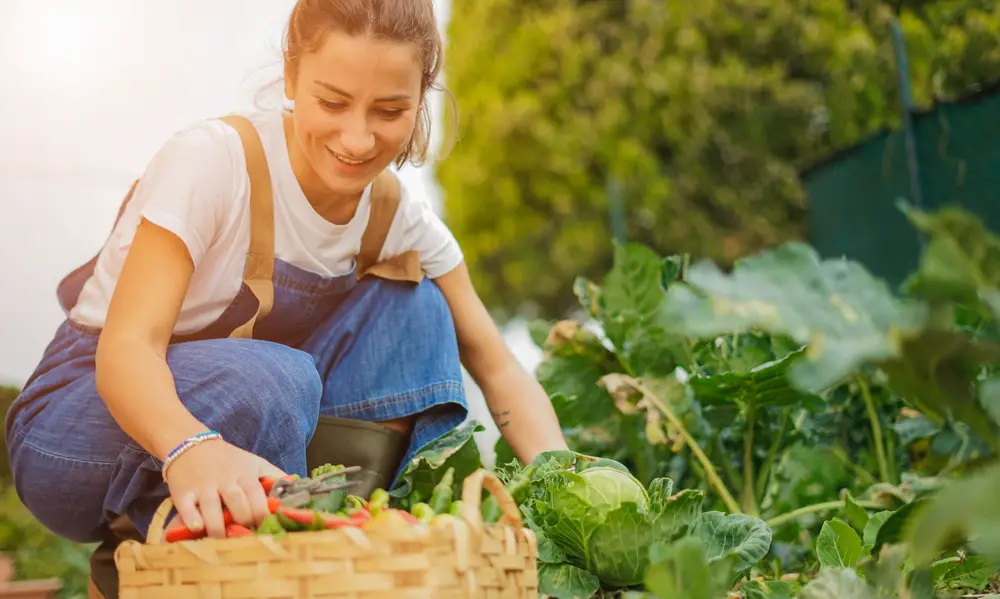
When it comes to the essential pros and cons of vegetable gardening, count the following among the pros:
- You’ll enjoy delicious homegrown food
- You’ll appreciate your food more
- It gives you a reason to go out and exercise
- You’re giving back to the earth
- Greater control over your food and health
- It’s inspiring and relaxing
- It’s empowering and satisfying
These are just some of the benefits vegetable gardening can offer.
Let’s start with enjoying delicious homegrown food.
You’ll Enjoy Delicious Homegrown Food
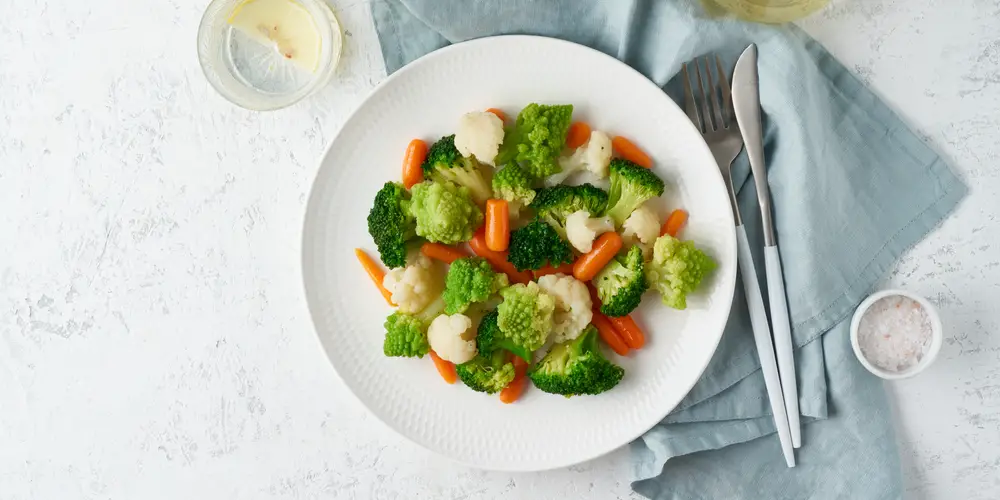
Enjoying tasty and nutritious vegetables without ever leaving your home is invigorating.
Imagine you want to make a meal. Maybe you’d like to put together a salad of some kind.
Obviously, you can make all kinds of meals with vegetables, but a salad is an easy (and tasty) example for our purposes.
Now, imagine you can just walk into your backyard and grab what you need instead of having to drive to the grocery store to get them, unsure how many people have handled those vegetables, how old they are, and how farmers grew them.
It’s not just knowing where your food comes from, knowing you grew it yourself, and knowing how fresh it is, though.
There’s something almost indescribable about plucking a perfectly ripened tomato off the vine, still warm from the sun. Or the sweetness of passing a bowl of the season’s first potatoes smothered in butter and dill around your table.
These aren’t the only moments you’ll get to enjoy, either. As you build your vegetable garden, learning what works and what doesn’t, you’ll also build your own moments to enjoy.
What’s great is those moments return season after season right alongside new ones.
All of this might seem like a bit much. I understand, but start planting, give your vegetables the care they need, and you’ll start to experience the same thrills and joys.
You’ll Appreciate Your Food More

You live with your food as you grow it at home. By the time it’s ready for harvest, you’ve developed an appreciation for it you may not have had before.
You’ve potentially grown it all the way from seed, nurtured it, and planned for and solved any problems it might’ve encountered. You may have even learned from many previous failures just to get to that point.
All of the above changes how you look at food for the better. In other words, you’ll value it more and take it for granted far less than before.
It Gives You A Reason To Go Out And Exercise
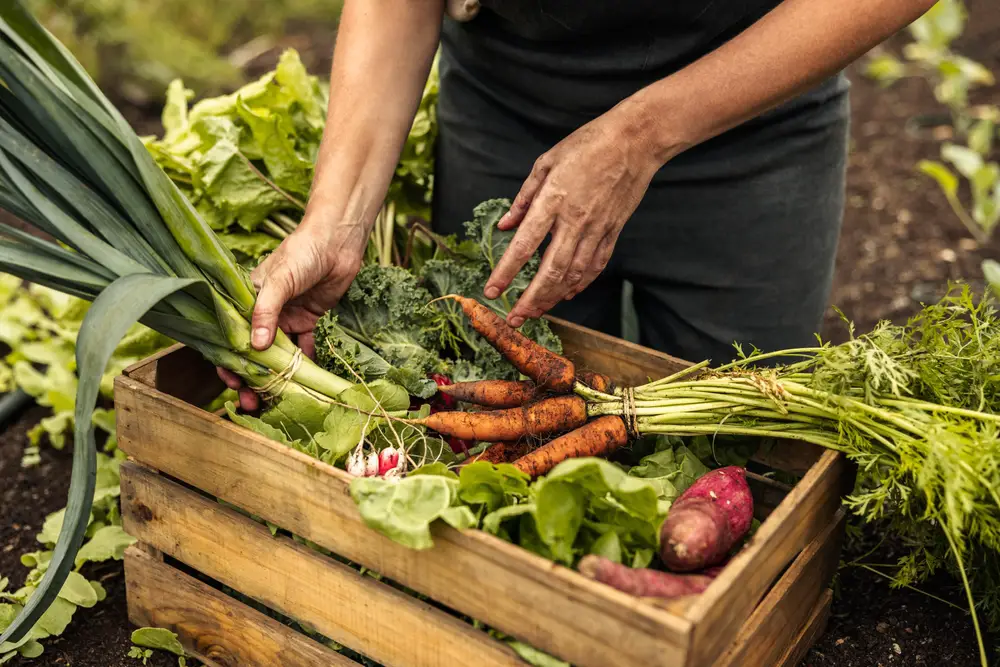
Growing and tending to your vegetable garden (or any garden) gets you moving regularly. At first, it may be tough. However, the more you get used to it, the more it’ll become relaxing, even something you look forward to.
Additionally, you’ll be outside while enjoying this benefit of vegetable (and other types of) gardening.
Plus, although your garden does need so much care each week, you still have some flexibility in terms of when you do it.
You’re Giving Back To The Earth
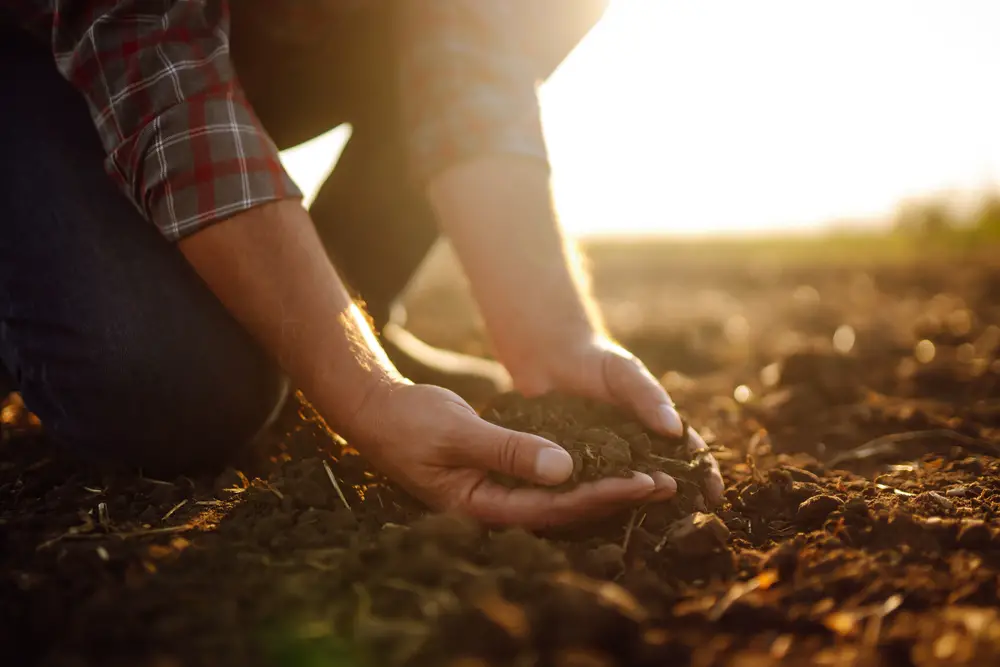
Hopefully, you know you’re reducing your carbon footprint when you grow even some of your food, including vegetables.
In other words, you’re reducing your impact on the earth.
It’s true that grocery stores have more and more healthy foods like vegetables. Unfortunately, commercial farming grows grocery store foods unsustainably and ships them long distances, which impacts the environment.
Getting food from your backyard, neighborhood, or local farmers’ markets is not nearly as wasteful.
Greater Control Over Your Food And Health
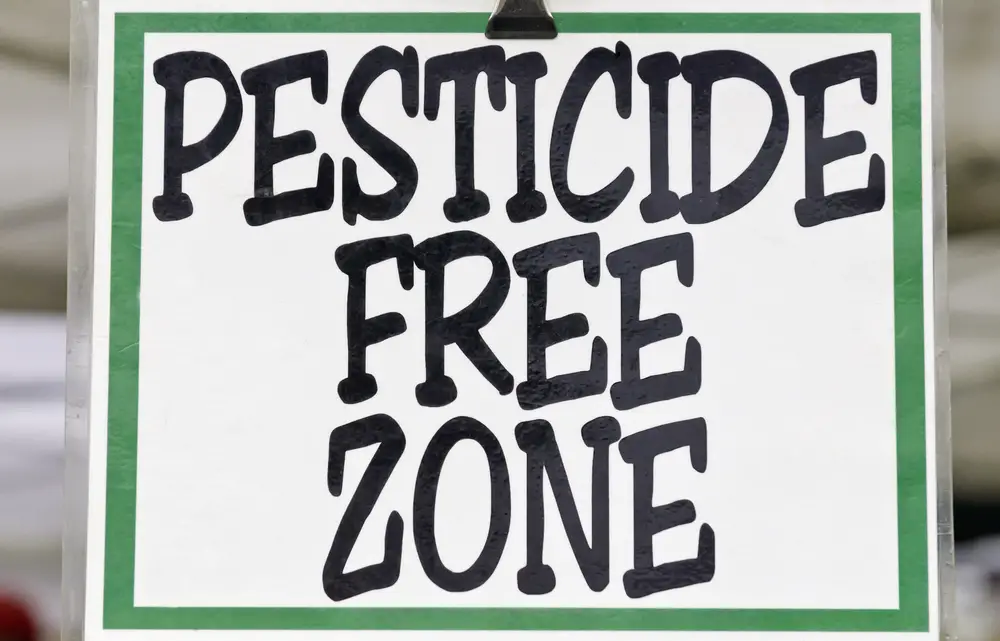
When you grow your food at home, you get to decide what you will grow and how you will grow it. You also get to enjoy the benefits that come along with it.
You can grow things you can’t find in the grocery store.
Additionally, you can choose not to use any chemicals, like herbicides and pesticides. This, of course, means you won’t have a chance of ingesting them, either.
Vegetables you grow yourself taste better than what you get at the store and are more nutritious as well. This is because you’ll harvest them when they ripen and use them when they are freshest.
It’s Inspiring And Relaxing
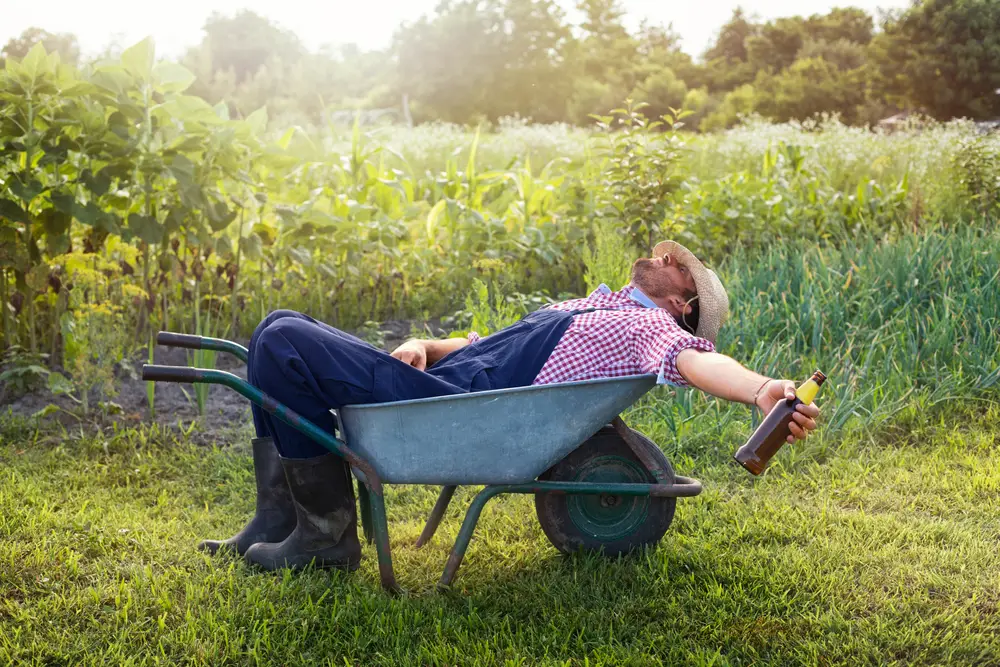
We talk about how we are tending our gardens. But much is to say about how our gardens tend to us.
Our gardens nourish and inspire us through the food we gather from them, their beauty, and the observation of nature at work.
After all, connecting with nature in this way and other ways (like hiking, for example) speaks to something deep inside us. It’s relaxing, even meditative.
Additionally, we connect with our planet as we garden. We are all interconnected, and gardening helps reinforce this idea.
Gardening forces us to slow down. This slower way of life, even for an hour or two, gives you time to reflect and think.
It also brings certain issues into greater focus, such as how our way of life is severely and negatively affecting our planet.
What’s great is that just by gardening, even with a small garden, you’re making your very own stand against it.
It’s Empowering And Satisfying
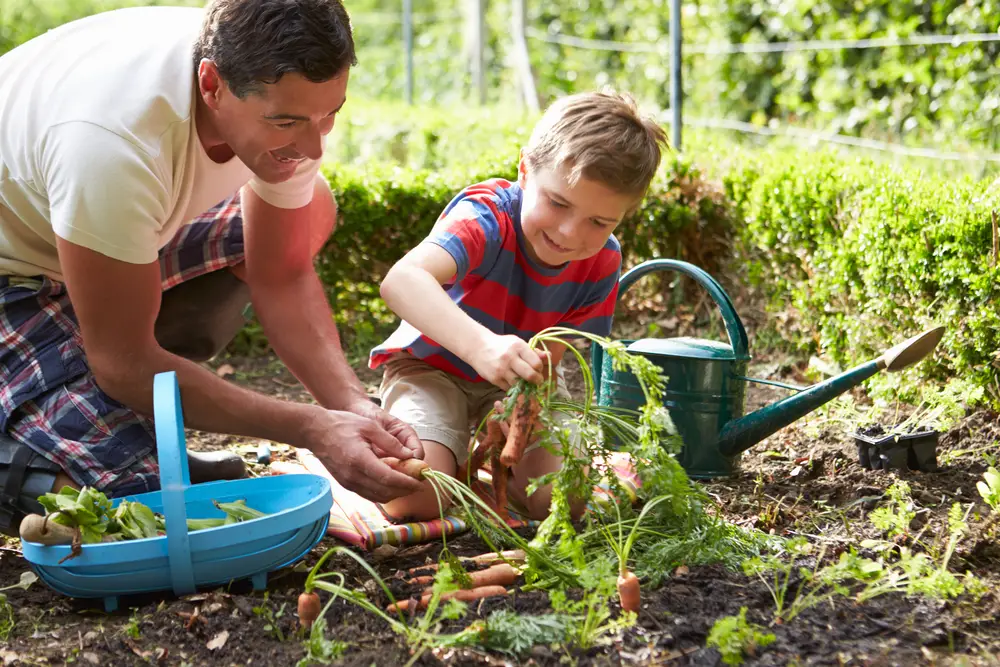
Growing a vegetable garden is an exercise in self-sufficiency.
When you learn the skills necessary to grow even some of the food you eat, you remind yourself of your ability to learn and care for yourself.
You feel strong and capable.
This isn’t the only reason growing your food feels so satisfying, though. And, as a quick side note, this next part won’t be for everyone.
We want you to know that’s okay. But for those who are interested, please keep reading.
As one of my favorite gardening teachers always says, “We have bodies to use them.”
This means exactly what you think it means, but he is also referring to the embodiment gardening brings us into.
But what does that mean?
Well, think of embodiment as a feeling of “belonging in the body” or even just feeling like you belong. Like you are doing what you’re meant to be doing in that moment, and you feel good about that.
Some people feel that gardening brings them this feeling because they’re using their bodies to grow food to sustain and nourish themselves, but they’re also taking care of the planet.
Keep in mind this feeling used to be more widespread because growing your own food was more widespread.
We lost this feeling and a reason to go outside and connect with our land as food production shifted into the hands of large-scale agricultural operations.
When you garden, you take this back for yourself. When you grow your food, you dedicate some of your time, energy, and attention to slowing down, being present, and connecting with yourself and your surroundings. It gives you a greater appreciation for all of it, too.
Cons
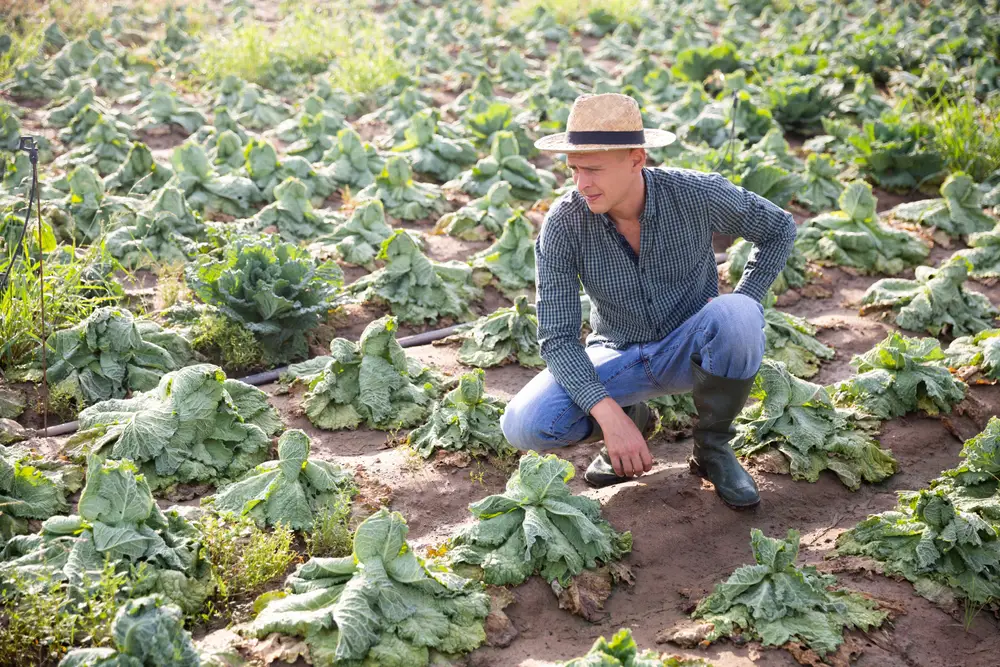
As a long-time gardener, I don’t have much to say against planting a vegetable garden when it comes to the pros and cons of vegetable gardening.
However, when I think back to my first gardens, I’m reminded of how much work growing your food can be.
Unfortunately, gardening is always more work than we anticipate.
Circumstances beyond your control can pose serious challenges to your success.
As you are learning, the first season or two are almost always the hardest.
I recommend it if you are considering growing your own vegetables, but you may want to start smaller than you think you should.
Here’s why.
The Learning Curve Can Be Steep
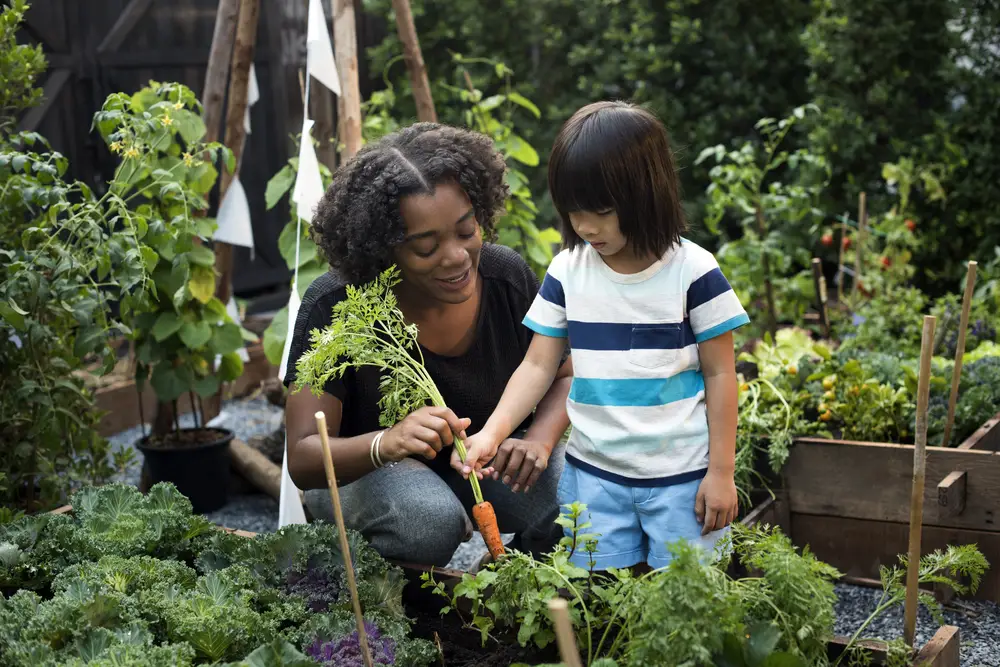
Learning to grow a vegetable garden with no experience can quickly become overwhelming.
The good news is it doesn’t have to be this way.
Gardening is not an all-or-nothing practice. You will be amazed by how much you can do with what seems like a little.
It is better to embark on a project you can succeed with and enjoy than to take on more than you can handle. In other words, start small and finish strong.
Plus, you can always expand your garden next year.
Most people who start at too large a scale don’t have a second season.
It’s Time-Consuming
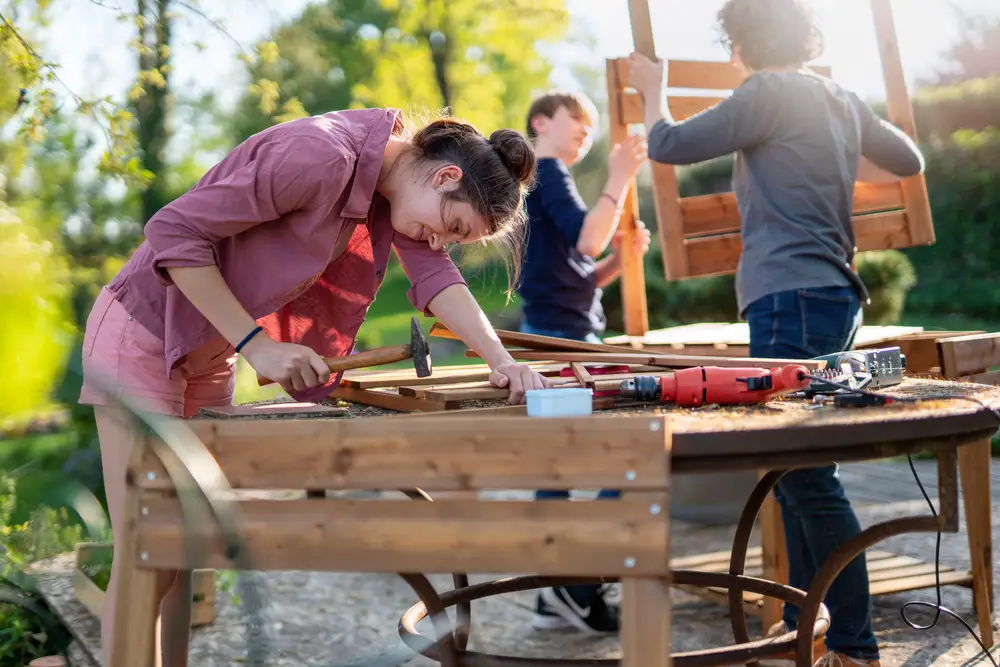
Your vegetable garden will be an ongoing endeavor.
You need to observe and respond to your garden’s needs regularly.
Some of the work is really fun and easy to do. Other jobs can be tedious or challenging in a variety of ways.
To succeed, you must stick with it consistently over the long term.
It Can Be Expensive
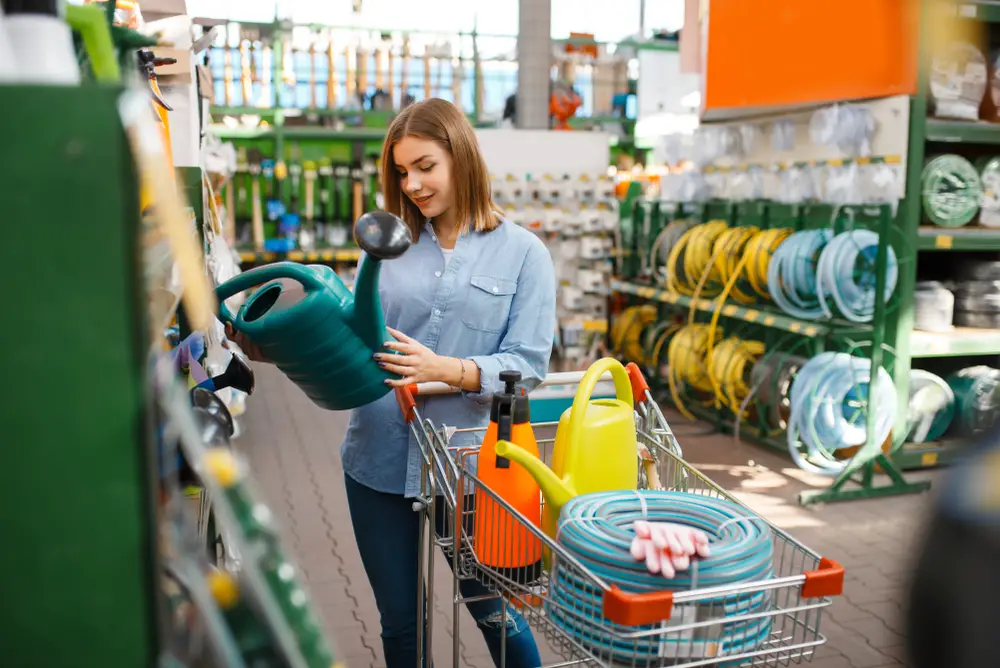
Gardening never has to be expensive if you’re willing to be patient.
As long as you have access to a growing space and a fresh water supply, you can always achieve some kind of success.
However, gardening can become quite costly if you have high expectations in one season and not that much experience.
But you don’t need every tool right now.
Use what you have until you know what you will use.
Besides, other expenses may be worthwhile. For example, if your soil is poor quality, you may want to purchase a truckload to be delivered.
If you are new to vegetable gardening, my advice is to choose your project and then scale it back to being as basic as possible.
You may be surprised by how much comes from so little.
Vegetable Gardening Is Slow
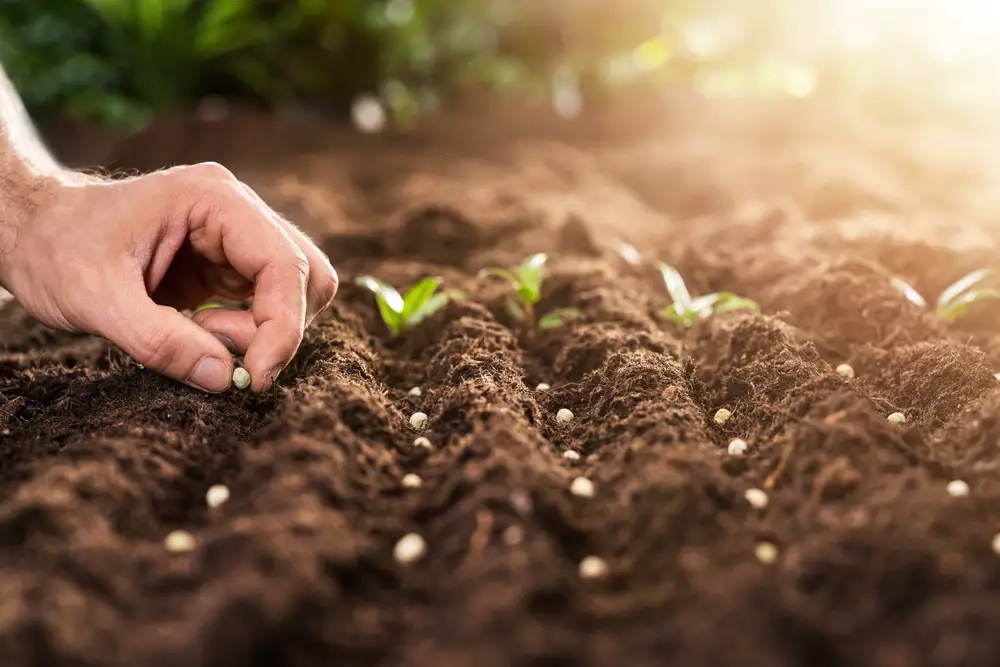
You cannot speed up vegetable gardening.
It is the ultimate slow-living act. Coming to terms with this can be quite the challenge, too, especially considering the pace of modern life.
However, you’re not alone. This can be difficult even for those drawn to gardening for this very reason.
Everything in your vegetable garden takes time.
You will either learn to appreciate this or struggle.
It’s Hard Work

Growing a vegetable garden is considerably more work than not growing a vegetable garden. This may sound obvious, but many people who dabble in growing their own food are surprised at how much work it is.
Don’t let this dissuade you.
Vegetable gardening is not usually a complicated activity.
That said, it has a lot of different parts, and the first year or two are often the most difficult. Sometimes surprisingly so depending on factors beyond your control (such as weather, storm damage, pests, etc.).
But no matter what happens, there is usually some kind of solution, and someone is always willing to help if you ask (like us!).
Gardeners of all kinds are usually quite generous with their knowledge and time.
Should You Grow A Vegetable Garden?
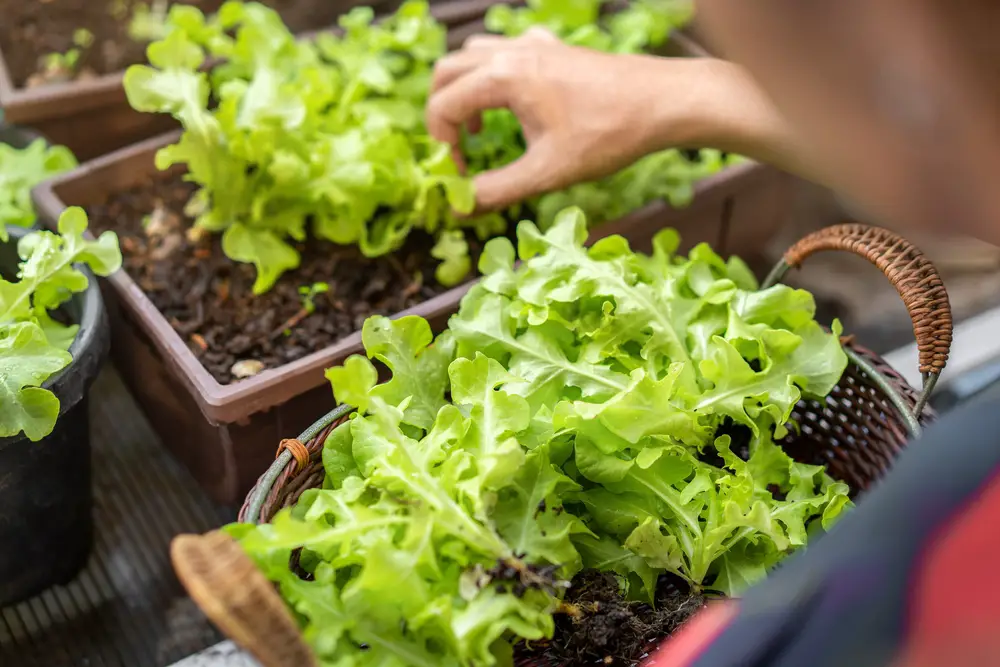
So, as you’ve seen from the above pros and cons of vegetable gardening, growing one is both a lot of work and tremendously rewarding. This kind of cost-benefit analysis only works if you find value in what you receive through your work.
If you enjoy spending time outside in nature, eating nutritious food, learning, exercising, contributing to the world, the pace of a growing season, and don’t mind getting a bit dirty, why wouldn’t you give it a try?
And if you do, let us know about it. We’d love to hear how it’s going and how we can help!

